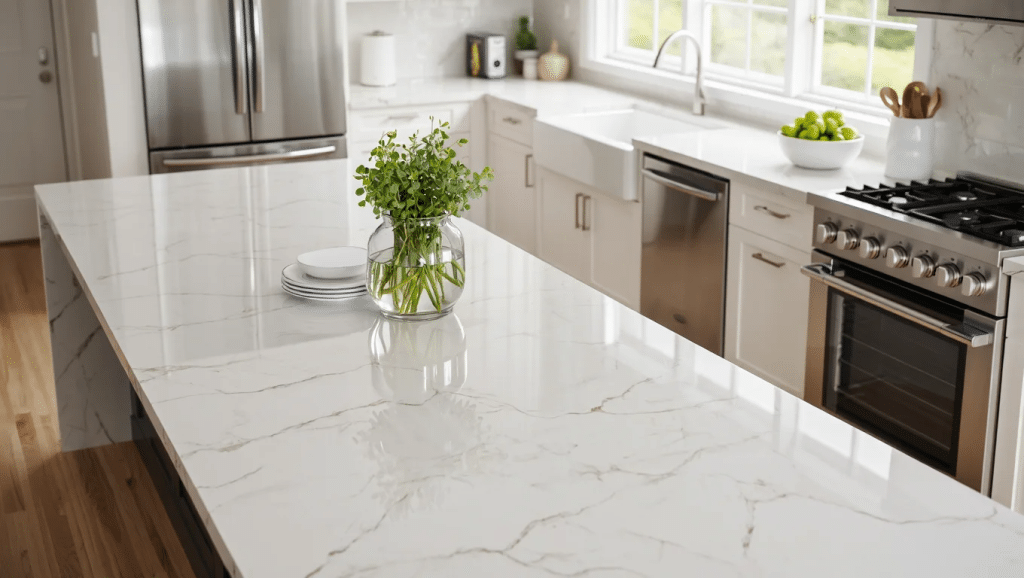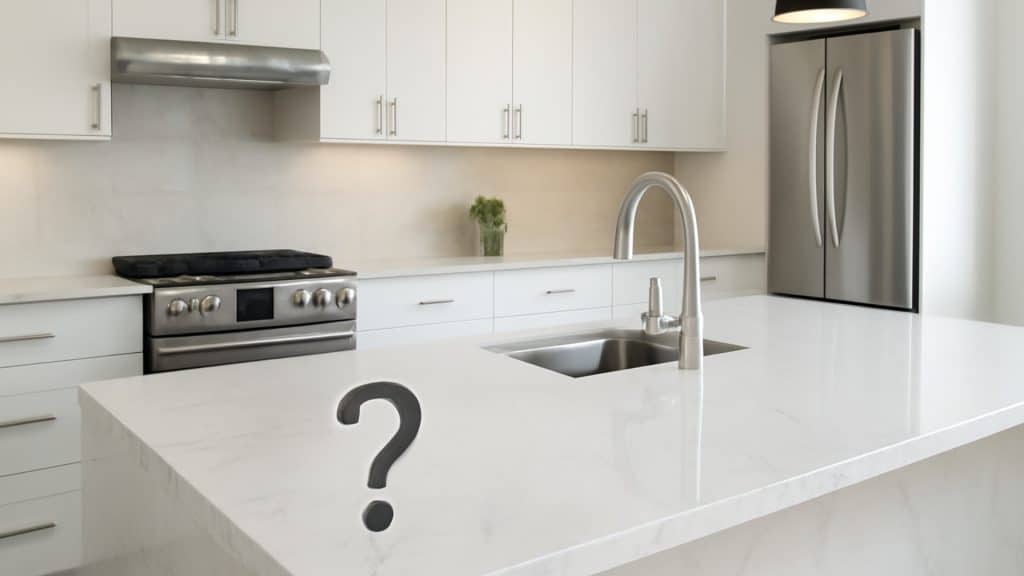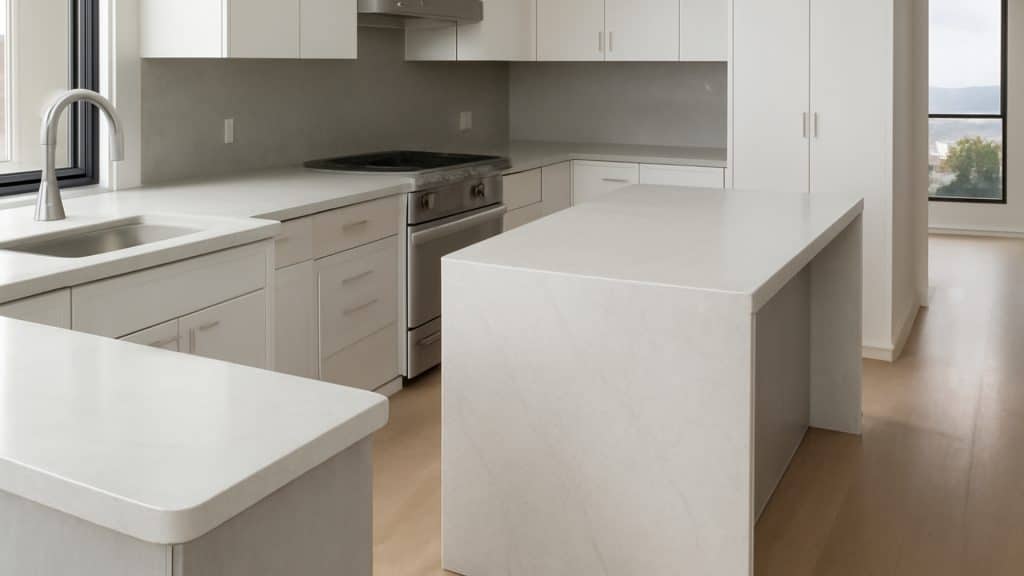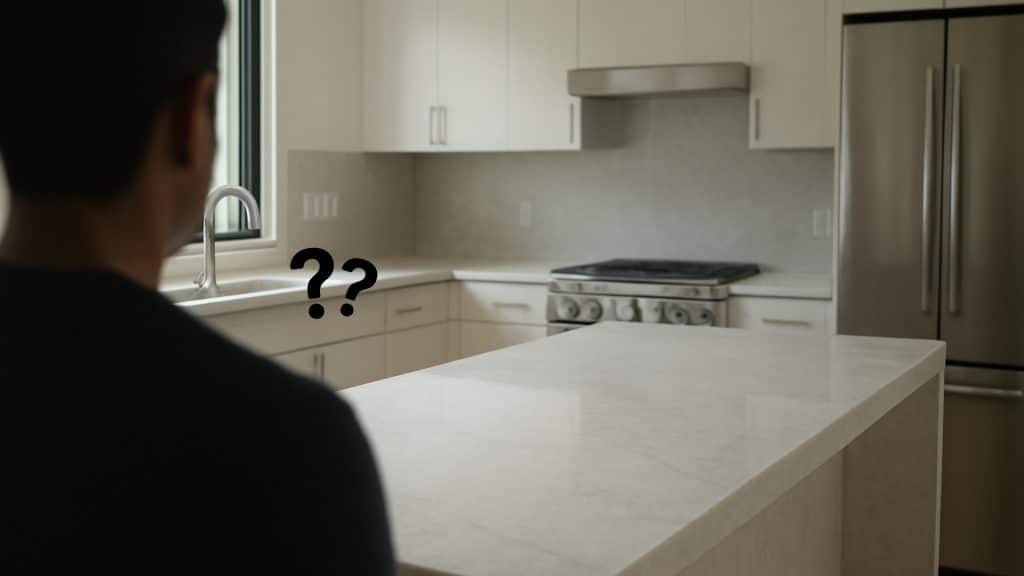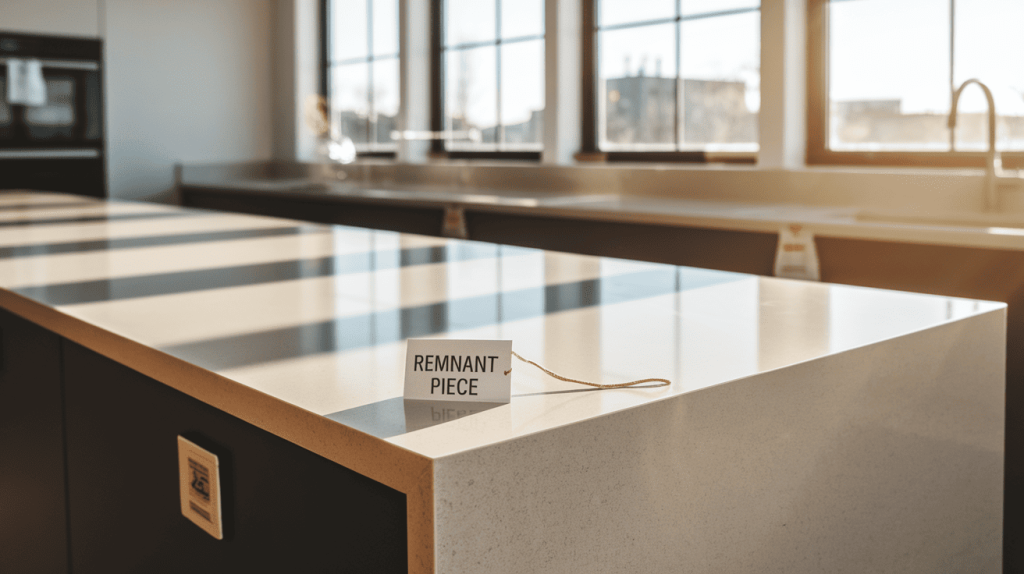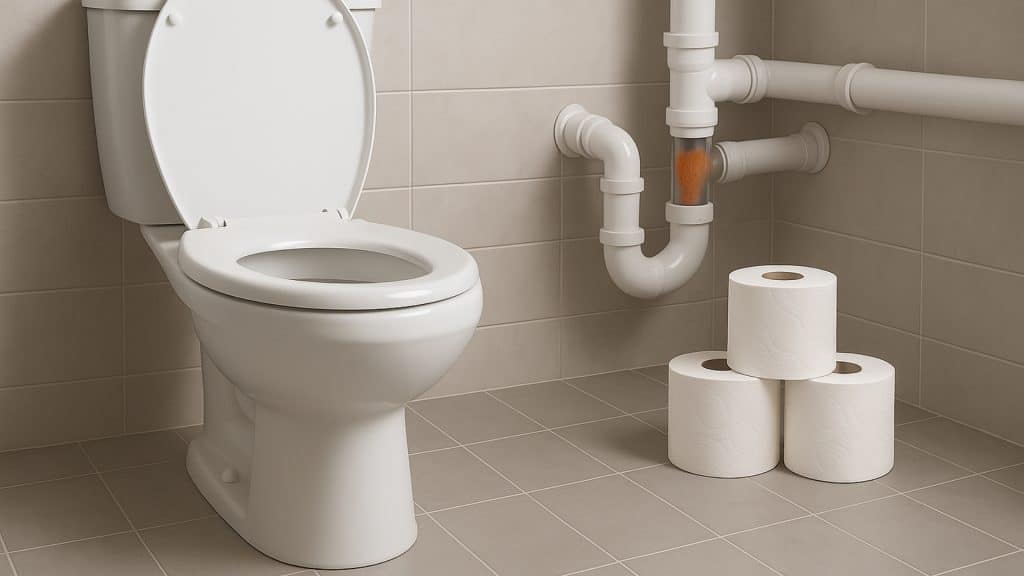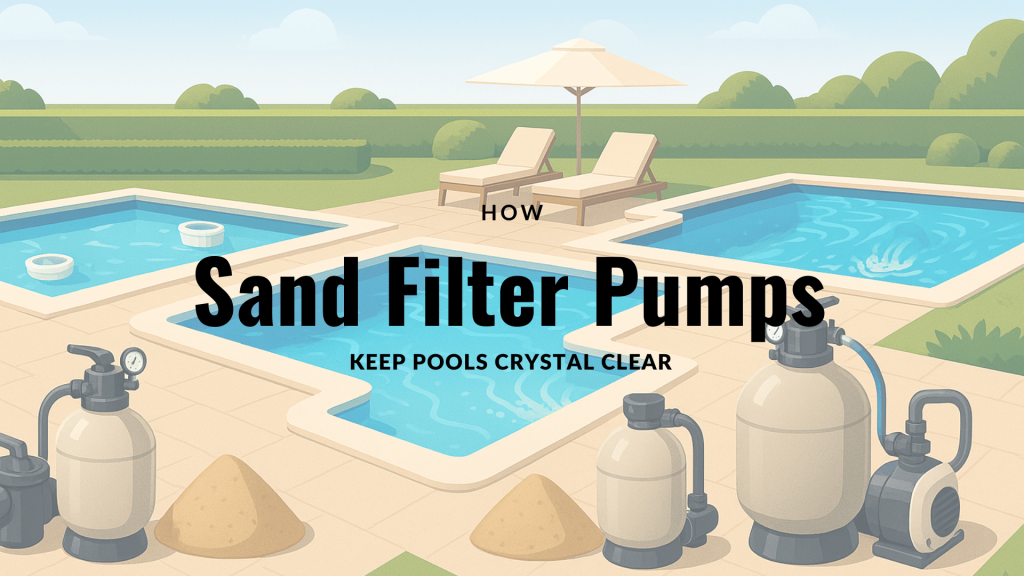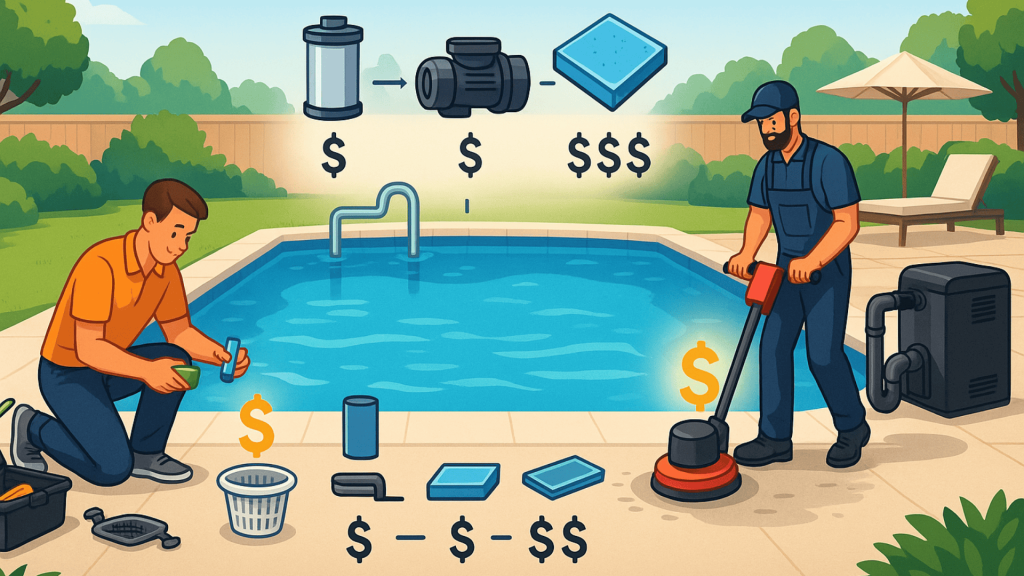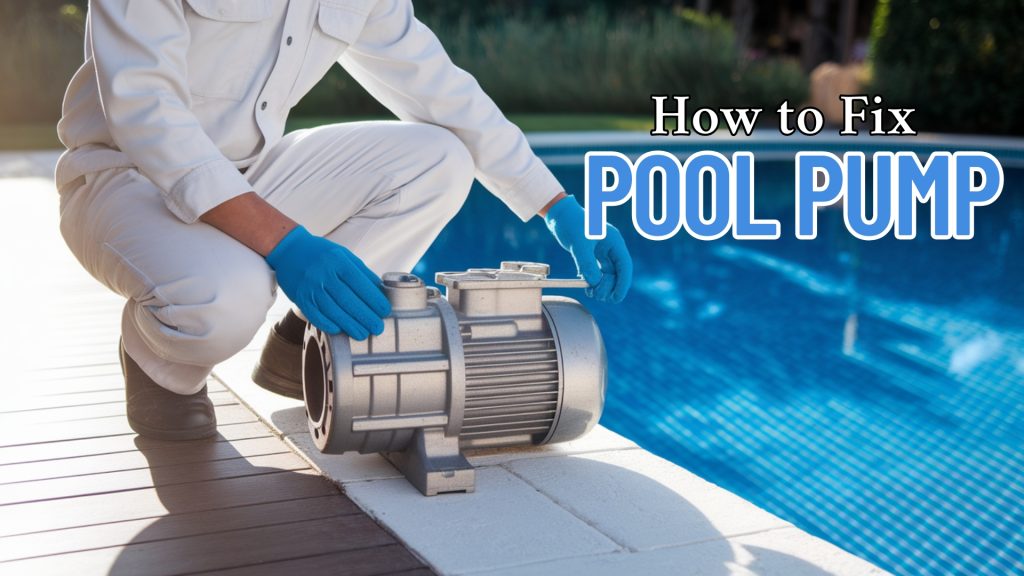Are quartz countertops expensive?
It’s a common question when planning a kitchen renovation.
With prices ranging from budget-friendly to luxury tier, quartz certainly isn’t the cheapest option available.
But before you rule it out based on price alone, it’s worth understanding what you get for your money.
Quartz offers an impressive combination of beauty, durability, and low maintenance that might actually save you money over time.
We will break down the real costs of quartz countertops and help you decide if they’re worth the investment for your home.
What Are Quartz Countertops?
Quartz countertops are man-made surfaces.
They combine ground natural quartz (90-95%) with resins, polymers, and pigments.
Unlike granite or marble, quartz isn’t cut from natural stone.
It’s engineered for consistency in pattern and color.
Natural stones have unique veining that varies with each slab. Quartz offers a more uniform look.
Homeowners love quartz for many reasons.
It’s very durable and resists scratches, chips, and stains.
It doesn’t need sealing like natural stone does. This makes it low maintenance.
Quartz comes in a variety of colors and patterns. Its non-porous surface prevents bacterial growth.
This makes it a clean choice for kitchens.
How Much Do Quartz Countertops Cost?
Quartz countertops typically cost between $50 and $120 per square foot, including installation.
The price depends on several factors that can make it cheaper or more expensive.
- Brand names like Caesarstone cost more than less-known brands.
- Unusual colors and patterns raise the price.
- Complex kitchen layouts or many sink cutouts increase installation costs.
When planning your budget, remember that these factors can significantly impact your final price.
A standard kitchen might cost $3,000, while the same size with premium options could reach $7,000.
It’s important to get detailed quotes from several installers to compare prices.
Quartz vs. Other Countertop Materials: Is It Really Expensive?
Choosing the right countertop involves balancing cost, appearance, and practicality.
Quartz is often considered expensive, but how does it truly compare to other popular options?
Look at the key differences:
| MATERIAL | COST/SQ FT | PROS | CONS |
|---|---|---|---|
| Quartz | $50-$120 | Durable, low maintenance, consistent | Not heat resistant, higher cost |
| Granite | $40-$100 | Natural beauty, heat-resistant | Needs sealing, can chip |
| Marble | $65-$180 | Luxurious, adds home value | Stains easily, high maintenance |
| Laminate | $10-$40 | Affordable, many designs | Damages easily, shorter lifespan |
| Concrete | $65-$135 | Customizable, unique | Can crack, complex installation |
While quartz isn’t the cheapest option, its durability and low maintenance requirements make it cost-effective in the long run.
Many homeowners find that the higher upfront cost pays off with years of trouble-free use and consistent appearance.
What Factors Influence Quartz Countertop Prices?
Quartz countertops can vary widely in price depending on several key factors.
Understanding these elements will help you budget properly and make informed choices for your kitchen or bathroom project.
1. Edge Styles and Finishes
The edge of your countertop can significantly impact the final price.
Standard straight edges (eased or square) are usually included in the base price.
Specialty edges like bullnose, ogee, waterfall, or beveled designs add $15-50 per linear foot.
More complex edge profiles require additional machining time and skill, which increases labor costs.
Polished finishes are standard, while textured finishes like leathered or honed might cost extra.
2. Thickness of Countertop
Quartz countertops come in two main thicknesses: 2cm (¾ inch) and 3cm (1¼ inch).
The thicker 3cm slabs typically cost 20-30% more than their thinner counterparts.
This price difference reflects the additional material used.
Many homeowners prefer 3cm for its sturdier feel and more substantial appearance.
Some fabricators offer a built-up edge on 2cm slabs to create a thicker look while saving on material costs.
3. Fabrication and Installation Costs
Fabrication and installation typically make up 30-40% of your total countertop cost.
Complex layouts with multiple corners, cutouts for sinks or cooktops, and unusual angles require more labor and precision.
Seams, especially in visible areas, need careful matching and joining.
Removing old countertops adds to the cost.
Some fabricators charge flat rates, while others charge by the hour for installation.
4. Geographic Location and Labor Rates
Where you live significantly affects the pricing of quartz countertops.
Major metropolitan areas and coastal regions typically have higher prices than rural areas.
This reflects differences in labor rates, shop overhead, and transportation costs.
Some regions have more competition among fabricators, which can drive prices down.
Local demand for premium materials also influences pricing, as does the availability of skilled installers in your area.
Is Quartz Worth the Price?
Quartz countertops offer excellent value despite their higher upfront cost.
They typically last 20-30 years with minimal care. This longevity makes them cost-effective in the long run.
Unlike natural stone, quartz does not require sealing. Just wipe with soap and water to clean.
These countertops resist scratches and stains extremely well.
They don’t absorb spills from wine, oil, or juice.
For home resale, quartz countertops can recover 70-80% of their cost.
Many buyers specifically look for quartz in kitchens.
The wide range of colors and patterns works with any style.
You can find quartz that mimics the appearance of marble, granite, or concrete.
This versatility helps justify the investment for most homeowners.
How to Save Money on Quartz Countertops
You can get beautiful quartz countertops without spending too much.
Try these money-saving tips to stay within your budget:
- Utilize remnant pieces from previous jobs for smaller projects, such as bathrooms.
- Opt for standard colors and patterns instead of limited-edition designs.
- Choose simple, straight edges rather than fancy options that add $15-$ 50 per foot.
- Get quotes from multiple fabricators – prices can vary by 15-30%.
- Shop during holiday sales or slower seasons when prices are lower.
With a bit of flexibility and smart shopping, you can save hundreds or even thousands on your quartz countertops.
You’ll still get the quality and look you want without the premium price tag.
Wrapping It Up
So, are quartz countertops expensive?
The answer isn’t a simple yes or no.
While the upfront cost is higher than some alternatives, such as laminate, quartz offers exceptional value.
It provides durability, low maintenance, and timeless appeal.
By shopping smart, you can find quartz countertops that fit your budget.
Choose wisely among thickness options, edge styles, and colors.
Keep in mind that this investment typically lasts for decades.
It also adds real value to your home.
For many homeowners, the long-term benefits make quartz countertops a worthwhile investment.
Frequently Asked Questions (FAQs)
What Is More Expensive, Quartz or Granite?
Quartz countertops are generally more expensive than granite, though rare granite types can sometimes cost more than standard quartz.
Can You Put Hot Pans on Quartz?
You shouldn’t place hot pans directly on quartz countertops, as extreme heat can cause discoloration or cracks, use trivets instead.
What Countertops Should I Avoid?
Avoid countertops made of plastic-based materials like cultured marble, solid surface, and laminate with formaldehyde emissions.

